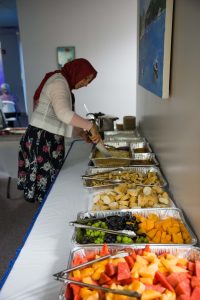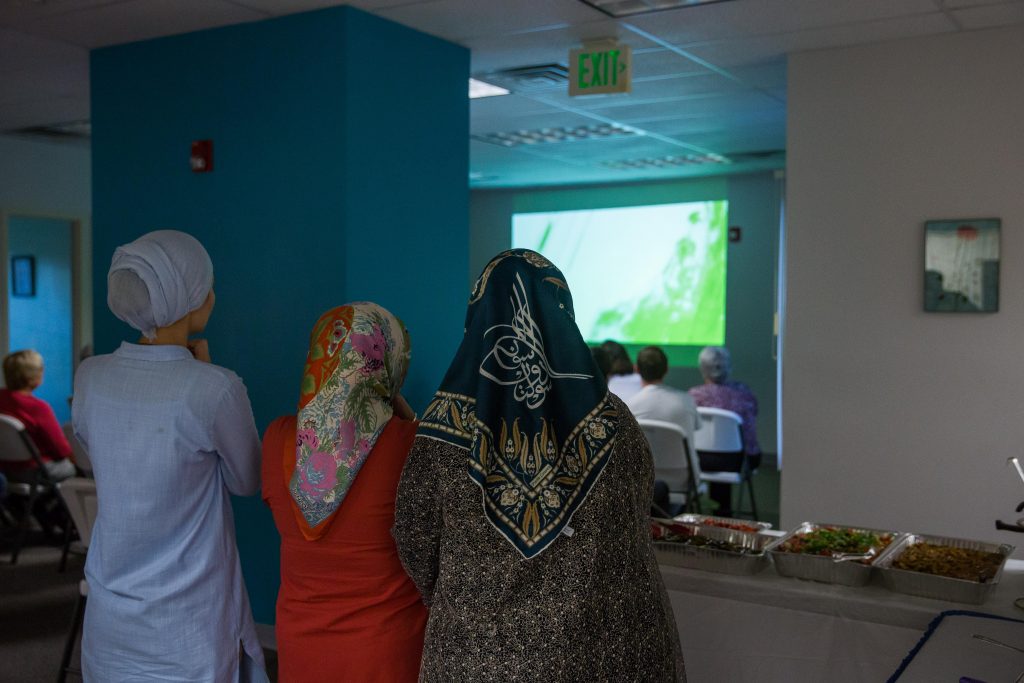Muslims in Utah said they feel well respected by their community, including when observing Ramadan, a monthlong fast.
Ramadan — which falls between Friday, May 26 through Saturday, June 24 this year — is a time when Muslims don’t eat or drink from sunrise to sunset and are also not to have impure thoughts and behaviors, according to the History Channel website.
Utah has an Islamic population of 1 percent according to the Pew Research, with twelve mosques around the state.
Emerald Hills Institute director Zeynep Kariparduc said the institute, formally known as the Anatolia Cultural Center, has been in Salt Lake City for 10 years, and is trying to create harmony, unity and friendship within the community.
“By offering different kinds of services, we invite people to come here and get to know each other and serving each other and other people,” Kariparduc said.

Kariparduc said Emerald Hills has always had a good turnout at its dinners and events. Emerald Hills Institute put on a traditional Ramadan dinner June 2.
“People hear about Ramadan a lot, but don’t really know what it is,” Kariparduc said. “They come here and they get to know about Ramadan culture, which is really close to some fastings in other cultures and religions. People get together and they realize that there is no difference; we just have different ways of serving our Gods.”
Noor Ul-Hasan originates from India and relocated with her family to California when she was 2 years old and has been in Utah for 27 years.
“Ramadan is a time for me to remember to how to be a good Muslim, the good characteristics of a Muslim, being kind, being charitable,” Ul-Hasan said, “I kind of look at it like a time to rejuvenate our faith. It’s kind of a reminder for me to put everything back into perspective.”
Ul-Hasan said she likes living in Utah because she feels her religion is respected among her neighbors and the schools her children attend.
“I like the values and the atmosphere given at the schools,” Ul-Hasan said.
Maysa Kergaye, of Syrian and Lebanese descent, now lives in Holladay, Utah. Kergaye said giving up activities during Ramadan is hard, but she is always grateful when Ramadan comes.
“I have to give up my exercise classes during Ramadan because I don’t want to harm my body in being dehydrated, but I am always amazed at how easy it is (to fast), and somehow we mange just fine,” Kergaye said.
Kergaye said her family didn’t celebrate Ramadan much when she was a child. When she moved to the states and lived with her mother, who was religious, she was put back on the religious path.
“I credit my religiosity to my mother’s prayers,” Kergaey said. “She prayed and God answered my mother’s prayers. I was not on that path of religious living and somehow I got onto that path. It’s a miracle.”
Kergaye said she loves being Muslim in Utah, and she likes that everyone is really friendly.
“People are nice and good. I’ve been in the same neighborhood for 25 years,” Kergaye said, “I love my neighbors; my neighbors love me. We get along.”





